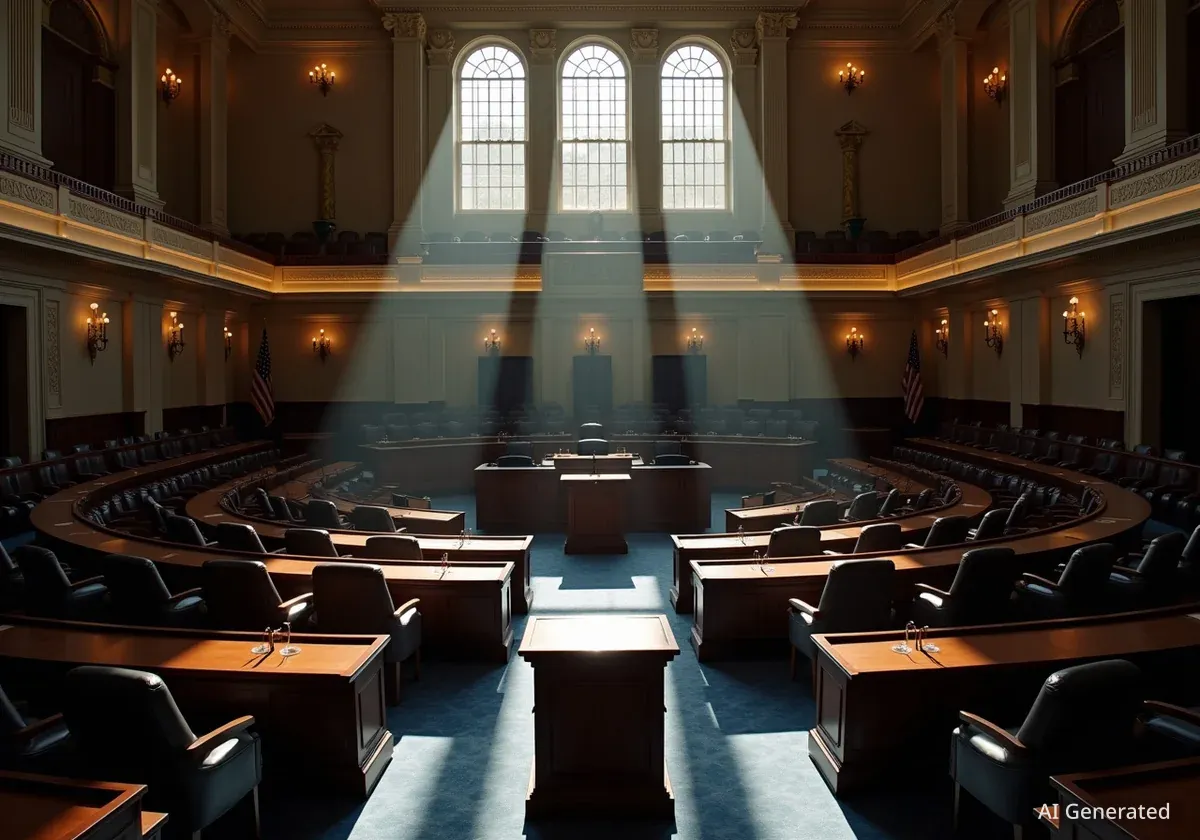The debate over raising France's retirement age from 62 to 64 has not ended, despite a period of reduced public demonstrations. While large-scale protests and strikes have subsided, the issue remains a significant point of contention for left-wing political parties and labor unions, challenging President Emmanuel Macron's government.
Key Takeaways
- France's retirement age debate, initially thought settled, continues to be a major political issue.
- President Macron's government faces ongoing opposition from unions and left-wing parties.
- Public attachment to early retirement is a core cultural value in France.
- The government made concessions to secure survival, highlighting public pressure.
Persistent Opposition to Retirement Age Hike
For more than two years, the fight over increasing the retirement age in France has continued. The initial large-scale demonstrations, which saw over a million protesters, have decreased in frequency. Similarly, instances of 'wild protests' involving black-clad youth and burning garbage have largely stopped.
Despite these changes, the core issue has not faded. Countrywide union strikes have occurred, though none recently focused exclusively on the retirement age. However, the underlying opposition to the reform remains strong, particularly among specific political and labor groups.
Fact: Retirement Age in France
France currently has one of the lowest statutory retirement ages among major developed economies. The proposal aimed to gradually increase it from 62 to 64 years.
Macron's Unyielding Stance Meets Public Resolve
President Emmanuel Macron has maintained a firm position on the pension reform. His administration argues that raising the retirement age is necessary to ensure the long-term financial stability of the pension system. This stance has met persistent resistance from a significant portion of the French population and organized labor.
The concept of an early pension is deeply ingrained in French society. Many citizens view it not merely as a benefit, but as a fundamental social right. This cultural attachment makes any reform proposals particularly sensitive and politically challenging.
"The right to retire early is seen as a cornerstone of our social contract," stated a spokesperson for a major French labor union. "Any attempt to erode this right will always face strong opposition from workers."
The Role of Labor Unions and Left-Wing Parties
Labor unions have played a crucial role in mobilizing public sentiment against the reform. They argue that the proposed changes disproportionately affect workers in physically demanding jobs and those who started their careers at a younger age. Their efforts have kept the issue alive in public discourse.
Left-wing political parties have also adopted the opposition to pension reform as a central rallying cry. They see it as a key battleground for protecting social welfare and challenging what they describe as neoliberal economic policies.
Historical Context of French Pensions
France's pension system is largely pay-as-you-go, meaning current workers' contributions fund current retirees' pensions. Demographic shifts, including increased life expectancy and lower birth rates, have put pressure on this system, leading successive governments to propose reforms.
Government's Concessions and Political Survival
The intense public and political pressure forced the government to make significant concessions. While the specifics of these concessions are complex, they were crucial for the government to navigate the political landscape and avoid a complete legislative deadlock. These adjustments allowed the administration to advance its agenda, albeit with modifications.
The ability of the government to survive, even with concessions, highlights the delicate balance between implementing necessary reforms and responding to strong public sentiment. The opposition's sustained efforts, despite the decline in mass protests, demonstrate the enduring power of public opinion in France.
- Public Opinion: Polls consistently show a significant portion of the French population opposes raising the retirement age.
- Economic Arguments: Government officials argue that without reform, the pension system faces a substantial deficit in the coming decades.
- Social Impact: Opponents highlight the potential negative impact on workers' health and well-being, especially for those in physically demanding professions.
Looking Ahead: An Unresolved Debate
The issue of pension reform in France remains unresolved in the eyes of many. While the immediate legislative battles might have concluded, the underlying societal debate continues. The strong cultural value placed on early retirement ensures that this topic will likely resurface in future political cycles.
President Macron's government has secured its immediate position, but the long-term implications of the concessions and the ongoing public dissatisfaction could influence future policy decisions and political campaigns. The French public's attachment to its social model, particularly concerning retirement, continues to be a powerful force in national politics.





